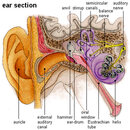bvana1
Registered
I was on my final check out dive for my Open Water cert. My instructor/dive buddy was also in charge of 2 other, more experienced (read impatient) divers, so when we entered the water there seemed to be a rush to the bottom. My mistake was not taking the time to equalize properly.
At the bottom (78 ft. Palancar Gardens, Cozumel) my ears hurt really bad, but I continued, thinking this was normal. When we surfaced I coughed up serious blood and goo. Ears hurt bad and couldn't hear too well. Did a second dive regardless in shallower water. Same thing.
That was 3 days ago. My ears still kinda hurt and feel pressure. Even after Sudafed and nasal decongestant. I came to CZM to dive everyday and haven't dove since that day. I did get certified but am on my way to the DAN clinic to see an ear specialist.
The moral of this bummer story is that ALL divers, but especially new ones, should take the time to equalize properly or your trip could deteriorate like my did. I hope this helps someone.
At the bottom (78 ft. Palancar Gardens, Cozumel) my ears hurt really bad, but I continued, thinking this was normal. When we surfaced I coughed up serious blood and goo. Ears hurt bad and couldn't hear too well. Did a second dive regardless in shallower water. Same thing.
That was 3 days ago. My ears still kinda hurt and feel pressure. Even after Sudafed and nasal decongestant. I came to CZM to dive everyday and haven't dove since that day. I did get certified but am on my way to the DAN clinic to see an ear specialist.
The moral of this bummer story is that ALL divers, but especially new ones, should take the time to equalize properly or your trip could deteriorate like my did. I hope this helps someone.
Attachments
Last edited:





